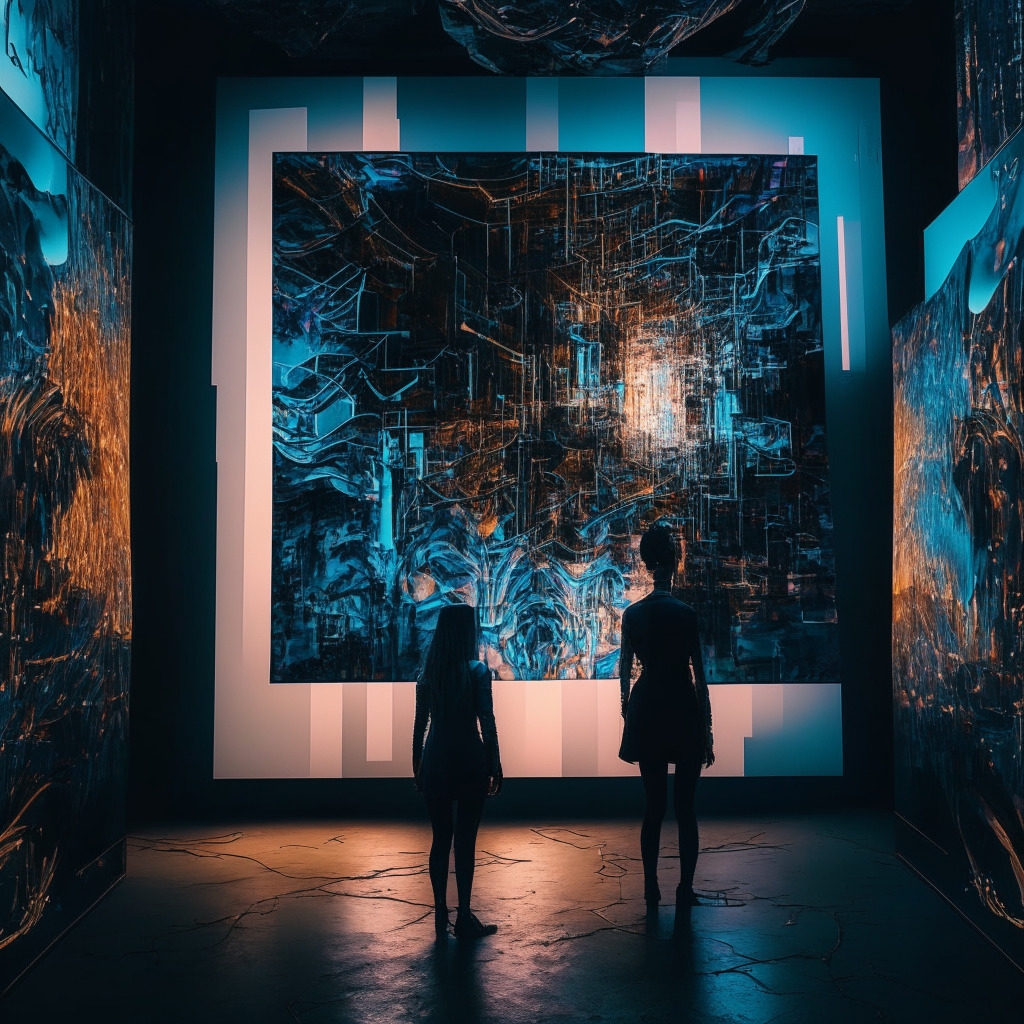In the bustling sphere of Web3 initiatives, one project stands out, if nothing for its utter audacity – Worldcoin. With lofty ambitions targeting everything from introducing a new form of cryptocurrency to reducing global inequalities, this San Francisco-based venture is not just another blockchain project.
At its heart, Worldcoin’s drive is centered on delivering a universal basic income (UBI) to everyone on this planet, all eight billion of them, leveraging cryptocurrency. But before it can roll out UBI, it first needs to resolve the tricky problem: distinguishing between real human beings and AI-generated duplicates.
In an interesting twist, Worldcoin has created a unique device, “The Orb,” designed to scan a human eyeball. The goal? To scan every human eye roaming the Earth and validate the veracity of being human. Eventually, it aims to offer everyone access to open-source and decentralized financial tools.
It’s easy to dismiss this project as a pipe dream, were it not for the intellectual might behind it. Worldcoin was co-founded by Sam Altman, the CEO of OpenAI. Altman’s theory plays on the expectation of a world transformed by Artificial General Intelligence (AGI), an AI so advanced that it exceeds human abilities. This, he predicts, can ramify profound productivity leaps and possibly unlock unprecedented material prosperity – and a huge societal shift.
Suppose AGI can fuel the engines of productivity and create wealth. In that case, there arises a question of equitable distribution – potentially resolved through UBI. Worldcoin, in this context, could be the solution to distribute this bounty.
Bringing this vision from idea to action is Worldcoin’s co-founder and CEO, Alex Blania, who was roped into the project by Altman in 2019. Skeptical initially, Blania dove headfirst into the project and has seen it grow from a conceptual stage to a working prototype, culminating in “The Orb” announcement in 2021. Current sign-ups are at 1.8 million and counting.
While the Worldcoin project does raise eyebrows, especially with the presence of The Orb, its potential cannot be underestimated. If it manages to execute its audacious plan and provide every person on planet earth with a universal basic income, it could herald one of the most significant technological shifts in history.
Still, concerns over The Orb’s implications on privacy and surveillance, coupled with regulatory hurdles, cannot be brushed aside. Worldcoin reassures that the data captured is purely to validate ‘human-ness’ and uniqueness and is not linked to personal identity.
In the end, whether Worldcoin will be able to wield its technological prowess to affect real-world changes on a large scale remains uncertain. But its audacious objective serves as a fascinating case study of how blockchain technology can be leveraged for social change. To conclude, among a sea of Web3 initiatives, Worldcoin stands out, making its evolution a topic that’s worth tracking.
Source: Coindesk




